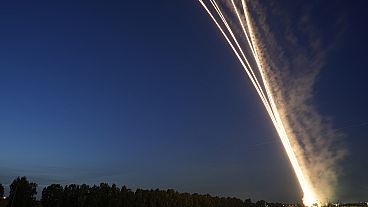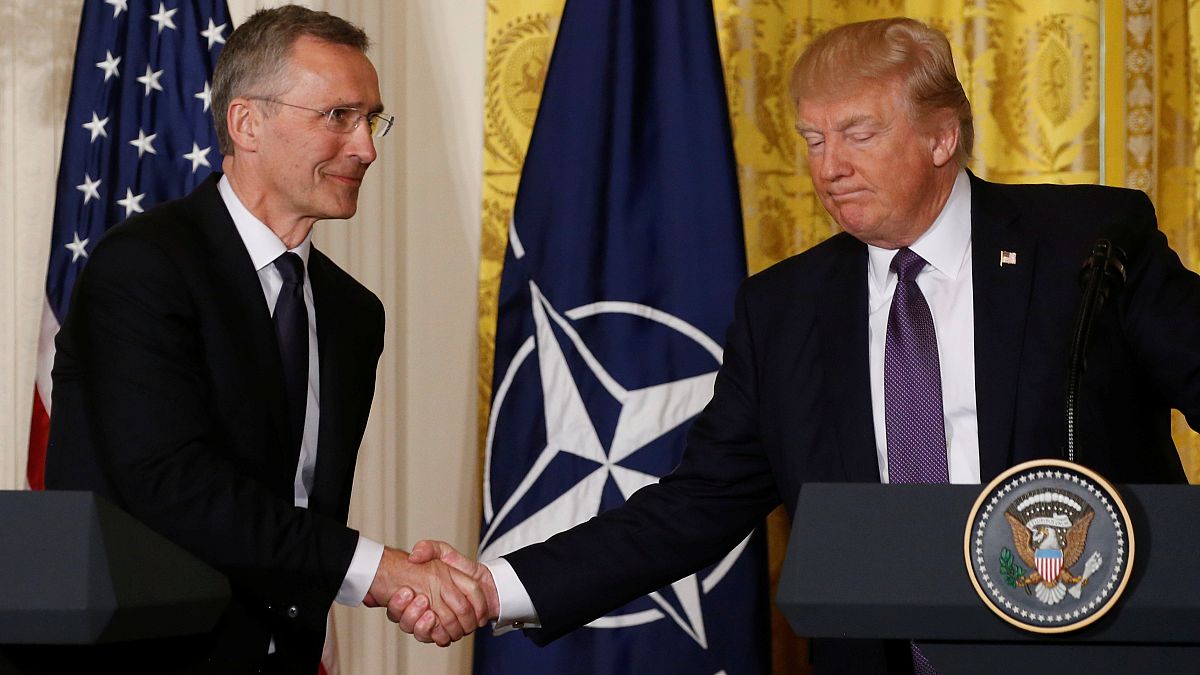US President Donald Trump's startling reversal on Syria is just one of many he has made since becoming president.
Anti-establishment supporters of US President Donald Trump may be distancing themselves from the president because of his unilateral missile strike on Syria, but this foreign policy reversal is just one of many he has made.
Since taking office just under three months ago, Trump has changed his mind on NATO, Russia, Syria and China, often breaking away from his firebrand campaign rhetoric.
Paired with domestic policy shifts in which he appears to have increasingly curbed the populist influence of Steve Bannon, the reneged promise to replace Federal Reserve Chair Janet Yellen and defeats suffered on reforming the country’s health care, Trump reversals are becoming a hallmark of his presidency
NATO
Trump spent months in 2016 as a candidate decrying the 28-member NATO alliance as obsolete. He criticised its effectiveness in the fight against terrorism and the alliance’s cost to the US.
His comments galvanised European allies, wary of a resurgent Russia, and worried the US would retreat from the world stage given Trump’s promise of “America first” polices.
His first shot at NATO came in March 2016 when Trump said other members need to shoulder more of the alliance’s financial costs. He added he supported the idea of NATO, but that the world had changed and the alliance has to move on from its original conception to focus on counterterrorism.
My statement on NATO being obsolete and disproportionately too expensive (and unfair) for the U.S. are now, finally, receiving plaudits!
— Donald J. Trump (@realDonaldTrump) March 27, 2016
It’s a message he would often repeat throughout the summer of 2016 and beginning of 2017: NATO is too expensive for the US and other allies aren’t paying their fair share.
It’s a message Trump maintains today.
But then, he reversed his position after meeting with NATO Secretary-General, Jens Stoltenberg at the White House this week.
“The secretary-general and I had a productive discussion about what more NATO can do in the fight against terrorism,” Trump said. “I complained about that a long time ago and they made a change, and now they do fight terrorism. I said it was obsolete. It’s no longer obsolete.
“In facing our common challenges we must also ensure that NATO members meet their financial obligations and pay what they owe. Many have not been doing that.”
Syria
Trump’s decision to bomb a Syrian military airfield in response to a suspected Syrian regime chemical attack in Idlib is perhaps the President’s largest political reversal so far.
Like his earlier stance on NATO, Trump aggressively campaigned in 2013 against any intervention in the Middle Eastern country.
Don't attack Syria – an attack that will bring nothing but trouble for the U.S. Focus on making our country strong and great again!
— Donald J. Trump (@realDonaldTrump) September 9, 2013
In late March Trump’s Secretary of State Rex Tillerson said the future of Syrian leader Bashar al Assad will be decided by the Syrian people.
But upon seeing images of the Idlib gas attack victims, Trump changed his mind and reportedly ordered the strike while having chocolate cake with Chinese President Xi Jinping.
The strike has fuelled speculation Trump would be in favour of enforcing regime change in the country.
China
As a candidate, Trump promised to confront China over allegations the country manipulates its currency to eek favourable global trade.
In February 2017 Trump doubled down on his China stance calling the country “the grand champions at manipulation of currency”.
Did China ask us if it was OK to devalue their currency (making it hard for our companies to compete), heavily tax our products going into..
— Donald J. Trump (@realDonaldTrump) December 4, 2016
their country (the U.S. doesn't tax them) or to build a massive military complex in the middle of the South China Sea? I don't think so!
— Donald J. Trump (@realDonaldTrump) December 4, 2016
It’s an accusation he has often made against the US’ largest trading partner and his sabre-rattling brought fears of a pending trade war between the US and China.
As a candidate he promised to officially call the country a currency manipulator on his first day in office as president.
Except he didn’t.
And Trump’s Treasury Secretary Seven Mnuchin revealed there was no urgency within the US government to officially accuse China of cheating on global trade.
Trump, following his two-day summit with China’s President Xi Jinping in Florida last week, officially reversed his stance saying he wouldn’t call China a currency manipulator.
Russia
US Secretary of State Rex Tillerson and Russian Foreign Minister Sergei Lavrov both acknowledged this week US-Russia relations were at a “low point” after the US’ retaliatory strike earlier this month against Syria.
U.S.-Russia relations reach “low point,” Sec. Rex Tillerson says after Moscow meeting https://t.co/hglVmuwGgIpic.twitter.com/O0ry13QH3g
— CBS News (@CBSNews) April 13, 2017
Wracked by an internal congressional investigation into Trump’s Russian connections, the US president has had to distance himself from his campaign rhetoric in which he lavished praise on Russia’s Vladimir Putin.
But if Trump’s domestic setbacks on Russia hadn’t changed his foreign policy approach, tensions regarding Syria did.
This week White House spokesman Sean Spicer said Russia was isolating itself in its unwavering support for Syrian leader Bashar al Assad.
Trump, in an exclusive interview with Fox Business News Tuesday, seemed to suggest Russia was partly to blame for the escalation of the Syrian war and the Idlib chemical attack.
He told Fox’s Maria Bartiromo Russia will be under increased pressure to put an end to the conflict.
“I really think that there’s going to be a lot of pressure on Russia to make sure that peace happens because frankly, if Russia didn’t go in and back this animal, you wouldn’t have a problem right now,” Trump said. “Putin is backing a person that’s truly an evil person, and I think it’s very bad for Russia, I think it’s very bad for mankind, it’s very bad for this world.”
During his presidential campaign Trump often called for warmer ties with Russia, and despite the current chill and harsh tone, there may be a sign of yet another reversal to come.
Things will work out fine between the U.S.A. and Russia. At the right time everyone will come to their senses & there will be lasting peace!
— Donald J. Trump (@realDonaldTrump) April 13, 2017
On Thursday Trump took to social media to express what could be interpreted as cautious optimism on the part of the US president with regards to Russia.
“Things will work out fine between the U.S.A and Russia,” he wrote. “At the right time everyone will come to their senses and there will be lasting peace!”


